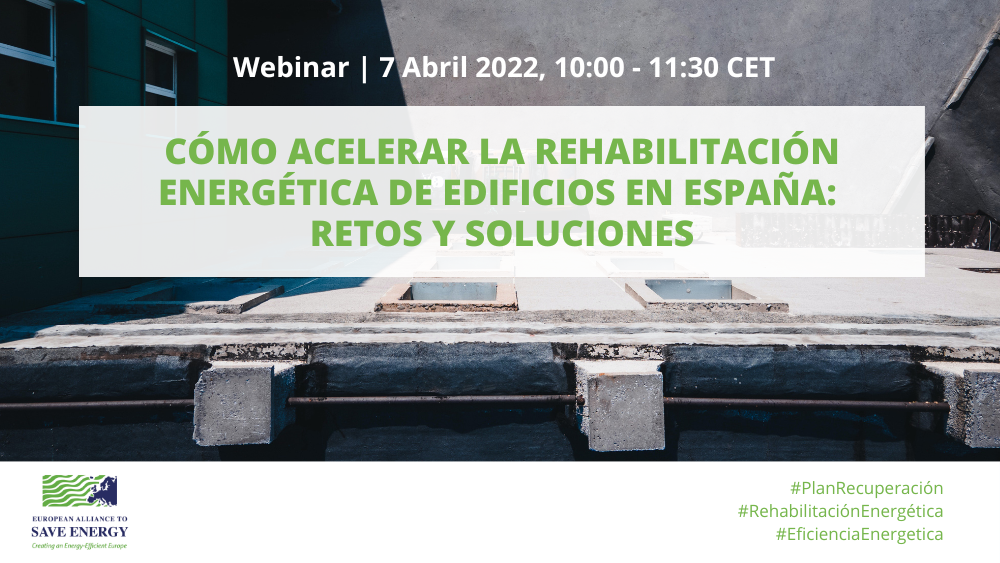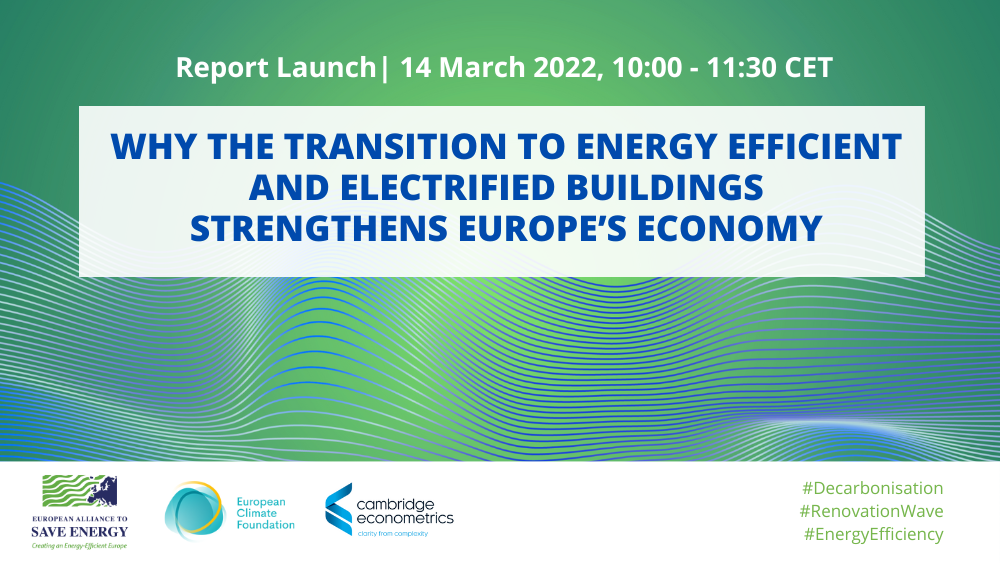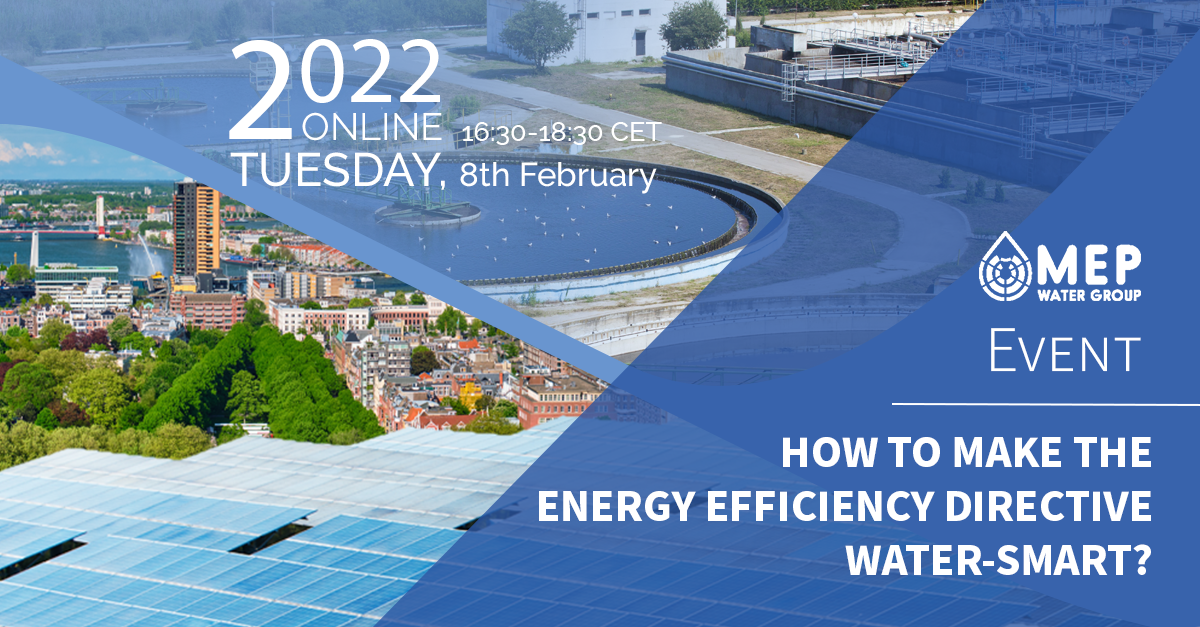Cómo acelerar la rehabilitación energética de edificios en España: retos y soluciones

Programa:
Presentación del papel “Renovate2Recover: ¿Hasta qué punto son transformadores los PNRR para la Rehabilitación de Edificios?” y mejores prácticas en Europa
- Vilislava Ivanova, Senior Researcher, E3G (en inglés con traducción simultánea al español)
Debate (con preguntas y respuestas)
Ponentes:
- Francisco Javier Martin Ramiro, Director General de Vivienda y Suelo del Ministerio de Transportes, Movilidad y Agenda Urbana (MITMA)
- Alberto Bayona, Director Gerente, Nasuvinsa (Navarra)
- Ignacio de la Puerta, Director de Planificación Territorial y Agenda Urbana, Gobierno Vasco
- Cecilia Foronda, Directora de Energía y Personas, Ecodes
- Eduard Puig MacLean, Director de Operaciones y cofundador, GNE Finance
Moderación: Monica Frassoni, Presidenta de la Alianza Europea para el Ahorro de Energía (EU-ASE)
Los edificios en España consumen un 30% del total energético y representan un 40% de las emisiones de gases de efecto invernadero. Así pues, la rehabilitación energética es fundamental para descarbonizar el parque inmobiliario español y alcanzar el objetivo de ahorro energético del 39,5% establecido en el Plan Nacional de Energía y Clima 2021-2030. Las rehabilitaciones pueden también ayudar a hacer frente al reciente aumento de los precios de la energía y a reducir las importaciones de gas natural ruso.
Este seminario analizo los retos actuales y las soluciones que podrían ayudar a España a impulsar su tasa de rehabilitación y contribuir a los nuevos objetivos climáticos europeos para el 2030. Los ponentes también intercambiaron sobre cómo crear mercados de renovación sostenibles que crezcan más allá del 2026.





